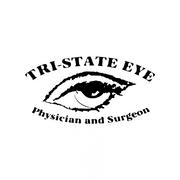
With digital eye strain, the visual organs can become tired or sore after staring at a screen for an extended period. Though this issue won't contribute to permanent vision loss, it can make work feel unpleasant and create discomfort. Understanding how the condition develops and affects the body will help you take preventative action, so here's what to know about it.
The Basics of Digital Eye Strain
Several factors can contribute to digital eye strain. One element is the increased use of screen-based devices—including TVs, computers, smartphones, and E-readers—in everyday life. With people spending almost seven hours looking at screens for work, leisure, and communication, there's an increased risk of experiencing fatigue and discomfort.

Another factor contributing to this condition is how people use their devices. For example, one is more likely to strain their eyes when looking at a phone inside a poorly lit room. Screens affect the visual organs more than printed materials because they lead to less blinking, which is the action that keeps your eyes moistened.
The condition doesn't lead to severe vision loss. However, it does feature uncomfortable symptoms, including headaches, dry eyes, neck and shoulder pain, and blurred or double vision. You can often alleviate these issues by performing another activity for a while.
How to Prevent Digital Eye Strain
There are several ways to avoid and reduce digital eye strain. An essential step, especially for those who rely on devices for work, is taking a break from screen-based activities every 20 minutes. For at least 20 seconds, spend the time focusing on something else. This approach allows your eyes to rest and avoid fatigue. You can also adjust the brightness of your screen, such as lowering it if you find yourself squinting.
Making sure you frequently blink when using a device helps avoid strain. If necessary, use artificial tears or drops to keep the eyes lubricated. Drinking plenty of water will also help prevent dryness by keeping the body hydrated.
Regular eye doctor visits and good work habits are key to avoiding vision loss. For preventive and restorative eye care, turn to the team at Tri-State Eye in Middletown, NY, and Milford, PA. They have over 25 years of experience providing state-of-the-art treatments for cataracts, glaucoma, and other sight-related ailments. Discover the services they offer online. To make an appointment, call their Middletown location at (845) 703-2020 or the Milford office at (570) 296-9696.
About the Business
Have a question? Ask the experts!
Send your question

